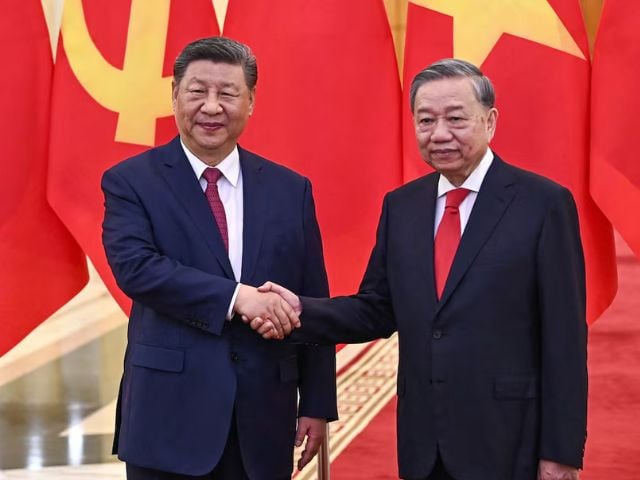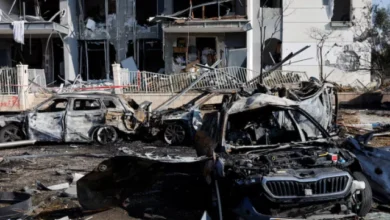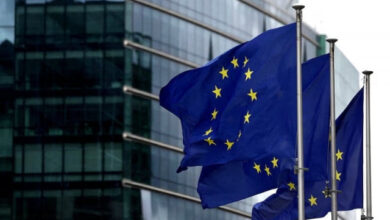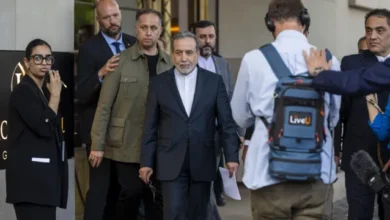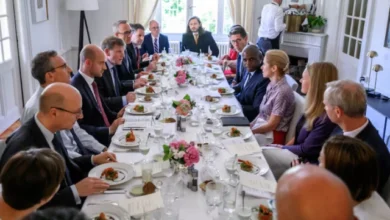US President Donald Trump has accused Chinese President Xi Jinping of using his Southeast Asia tour—including a high-profile stop in Vietnam—to “screw” the United States, as Beijing pushes back against steep new American tariffs and calls for regional unity against what it terms Washington’s “unilateral bullying.”
Speaking to reporters at the White House on Monday, Trump claimed that Xi’s meetings with Vietnamese leaders were “like trying to figure out, how do we screw the United States of America.” He added, “I don’t blame China. I don’t blame Vietnam. That’s a lovely meeting.”
Xi arrived in Hanoi on Monday for a two-day state visit, his first stop on a five-day regional tour that includes Malaysia and Cambodia.
The visit comes amid escalating trade tensions, following the Trump administration’s rollout of a global tariff policy that saw Chinese goods hit with effective duties of 145%. In response, Beijing imposed 125% tariffs on U.S. imports.
While Trump later rolled back tariffs for most countries—including Vietnam and Malaysia—to 10% and issued a 90-day pause for enforcement, China remained an exception, with exemptions only on certain tech products like chips and smartphones.
In Hanoi, Xi called for strengthened cooperation between China and Vietnam, urging both nations to resist “unilateral bullying” and protect the global free trade system. “A small boat with a single sail cannot withstand the stormy waves,” Xi said, “and only by working together can we sail steadily and far.”
Vietnam, a major manufacturing hub and one of the top exporters to the US, has been caught in the crossfire. Approximately 30% of Vietnam’s GDP is linked to American demand, according to customs data. Facing a 46% US tariff, Vietnam is negotiating to reduce it to between 22% and 28%, and has pledged to crack down on transshipment fraud involving Chinese goods falsely labeled as “Made in Vietnam.”
Xi and Vietnamese Communist Party leader To Lam signed 45 bilateral agreements on Monday, including deals on supply chain development, AI cooperation, and major rail infrastructure. Among the new rail projects is a planned $8.3 billion link between Vietnam’s northern coast and Kunming, China. Two additional cross-border railways are in feasibility stages, backed by a $1.36 million Chinese study grant.
On Tuesday, Xi paid tribute at the Ho Chi Minh Mausoleum in Hanoi, laying a wreath bearing the inscription “Long live Vietnam’s great leader President Ho Chi Minh,” before departing for Malaysia and Cambodia.
Xi’s trip, the first overseas tour of the year for the Chinese leader, is widely seen as an attempt to solidify regional alliances amid mounting distrust of the U.S. in Southeast Asia. “The uncertainty created by US tariffs, as well as Washington’s treatment of allies, undermines US credibility,” said Ian Chong of the National University of Singapore.
Malaysian Trade Minister Zafrul Aziz echoed concerns, saying the US tariff calculation was “not fair” and that Malaysia would not choose sides. “You simply can’t not deal with one side,” he told the BBC.
In an article published Monday in Vietnam’s Nhan Dan newspaper, Xi argued that “trade wars produce no winners” and called for the defense of global supply chain stability and multilateralism. China and Vietnam, both communist-led nations, maintain what Hanoi calls a “comprehensive strategic partnership.”
Vietnam continues to walk a diplomatic tightrope between China and the US, a policy it refers to as “bamboo diplomacy.” While it relies heavily on China for trade and investment, it shares strategic concerns with the US over Beijing’s growing assertiveness in the South China Sea.
Xi’s tour continues through Friday.

